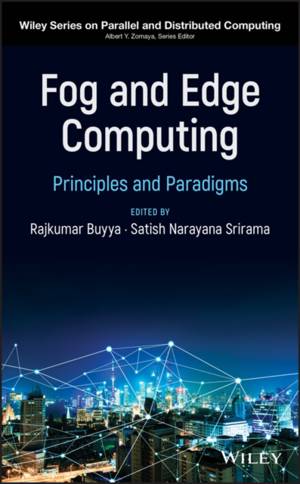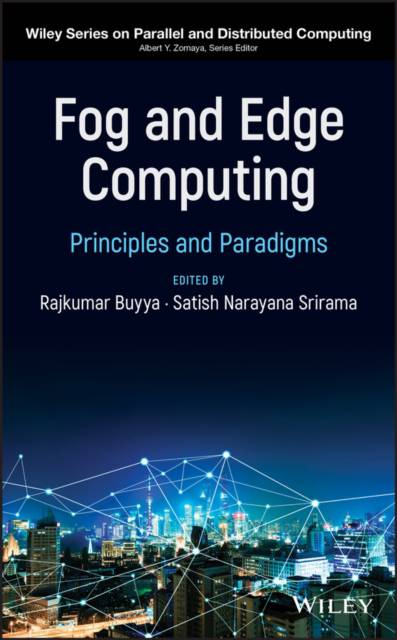
- Retrait gratuit dans votre magasin Club
- 7.000.000 titres dans notre catalogue
- Payer en toute sécurité
- Toujours un magasin près de chez vous
- Retrait gratuit dans votre magasin Club
- 7.000.0000 titres dans notre catalogue
- Payer en toute sécurité
- Toujours un magasin près de chez vous
Fog and Edge Computing
Principles and Paradigms
Description
A comprehensive guide to Fog and Edge applications, architectures, and technologies
Recent years have seen the explosive growth of the Internet of Things (IoT): the internet-connected network of devices that includes everything from personal electronics and home appliances to automobiles and industrial machinery. Responding to the ever-increasing bandwidth demands of the IoT, Fog and Edge computing concepts have developed to collect, analyze, and process data more efficiently than traditional cloud architecture.
Fog and Edge Computing: Principles and Paradigms provides a comprehensive overview of the state-of-the-art applications and architectures driving this dynamic field of computing while highlighting potential research directions and emerging technologies.
Exploring topics such as developing scalable architectures, moving from closed systems to open systems, and ethical issues rising from data sensing, this timely book addresses both the challenges and opportunities that Fog and Edge computing presents. Contributions from leading IoT experts discuss federating Edge resources, middleware design issues, data management and predictive analysis, smart transportation and surveillance applications, and more. A coordinated and integrated presentation of topics helps readers gain thorough knowledge of the foundations, applications, and issues that are central to Fog and Edge computing. This valuable resource:
- Provides insights on transitioning from current Cloud-centric and 4G/5G wireless environments to Fog Computing
- Examines methods to optimize virtualized, pooled, and shared resources
- Identifies potential technical challenges and offers suggestions for possible solutions
- Discusses major components of Fog and Edge computing architectures such as middleware, interaction protocols, and autonomic management
- Includes access to a website portal for advanced online resources
Fog and Edge Computing: Principles and Paradigms is an essential source of up-to-date information for systems architects, developers, researchers, and advanced undergraduate and graduate students in fields of computer science and engineering.
Spécifications
Parties prenantes
- Editeur:
Contenu
- Nombre de pages :
- 512
- Langue:
- Anglais
- Collection :
Caractéristiques
- EAN:
- 9781119524984
- Date de parution :
- 30-01-19
- Format:
- Livre relié
- Format numérique:
- Genaaid
- Dimensions :
- 155 mm x 231 mm
- Poids :
- 898 g

Les avis
Nous publions uniquement les avis qui respectent les conditions requises. Consultez nos conditions pour les avis.





